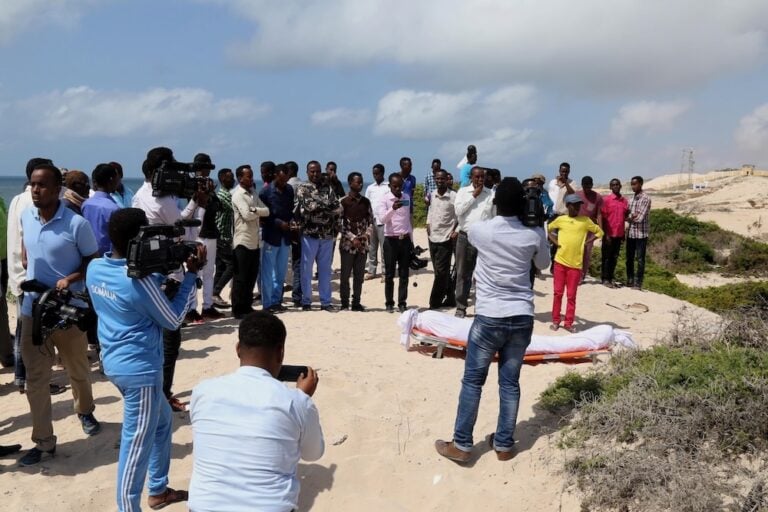To mark World Day for Safety and Health at Work, NUSOJ calls attention to the abysmal safety record of journalists reporting in Somalia.
(NUSOJ/IFEX) – On the occasion of World Day for Safety and Health at Work, 28 April 2010, the National Union of Somali Journalists (NUSOJ) issued the following statement:
Somalia has been notorious for the brutal killing of local journalists who were determined to vigorously carry out their professional duties. Journalists have been prime targets for the warring sides in Somalia who do not like the truth to be uncovered, public plights to be revealed and human atrocities to be presented in journalistic reports.
The safety of Somali media professionals has declined drastically in recent years because the media has been perceived as part and parcel of the conflict – a platform to pass warmongering messages and a functional instrument for defeating enemies. Journalists who declined to bend to the whims of warmongers received warnings telling them they would pay the price of defiance before they were murdered. Media practitioners who have dared to expose the ills in society are often killed for the stories they tell.
Media work has become very unsafe in Somalia. It has become a profession wrought with dangerous hazards. A total of 19 journalists have been killed in Somalia since 2007. The killers do not need to escape the justice because there is no one to put them through a justice system, hence there is a great deal of impunity. They are neither named nor questioned for their gruesome transgressions. Murdered journalists and their families have no remedy.
The security of journalists did not deteriorate only because of the lawlessness and instability that has afflicted Somalia for nearly 20 years. Calculated and well-organised criminal acts are the major cause of insecurity. Warring sides have turned the media houses into a theatre of war. Journalists have become the charcoal with which to fuel the crisis. Impunity is the motivating factor.
We call upon all sides in the armed struggle in our country to cease hostilities, turn their guns away from journalists and allow media professionals to work and live in safety and peace. We censure, again, the ruthless hooded men who covered their faces as they fired bullets into the bodies of journalists whose only crime was to be armed with a pen and a notebook.
We call upon the media owners, editors and journalists to join forces with like-minded members of Somali society to start addressing the safety problems. Without safety, journalists will not be willing to continue being part of the statistics of journalists killed and will thus cease working, which means there would be news blackout in Somalia.
Let us stand up for the safety of men and women working for the media.


